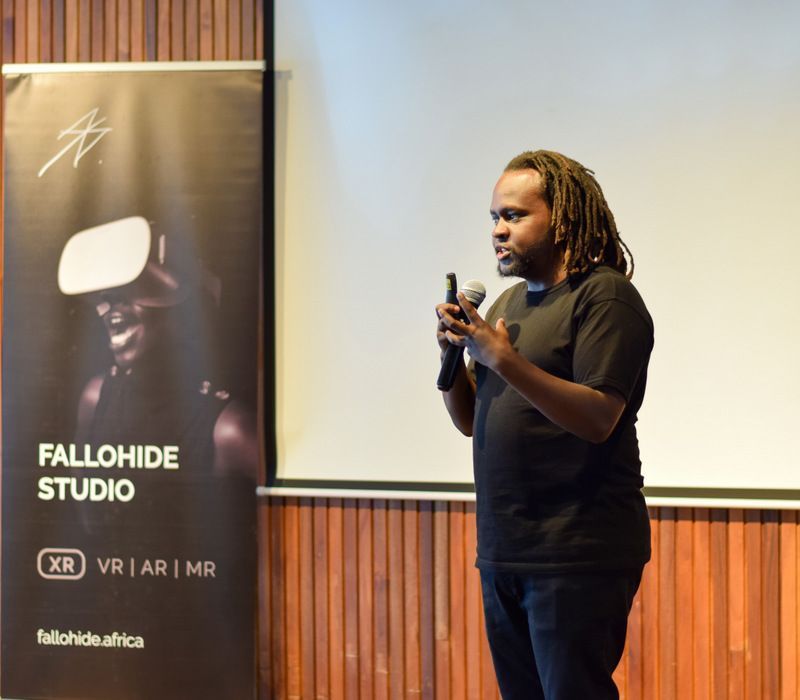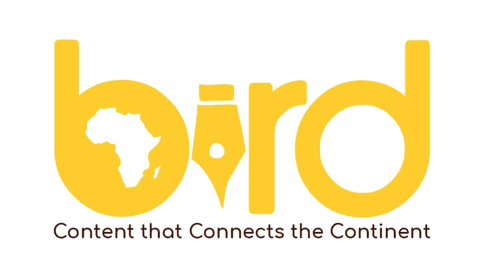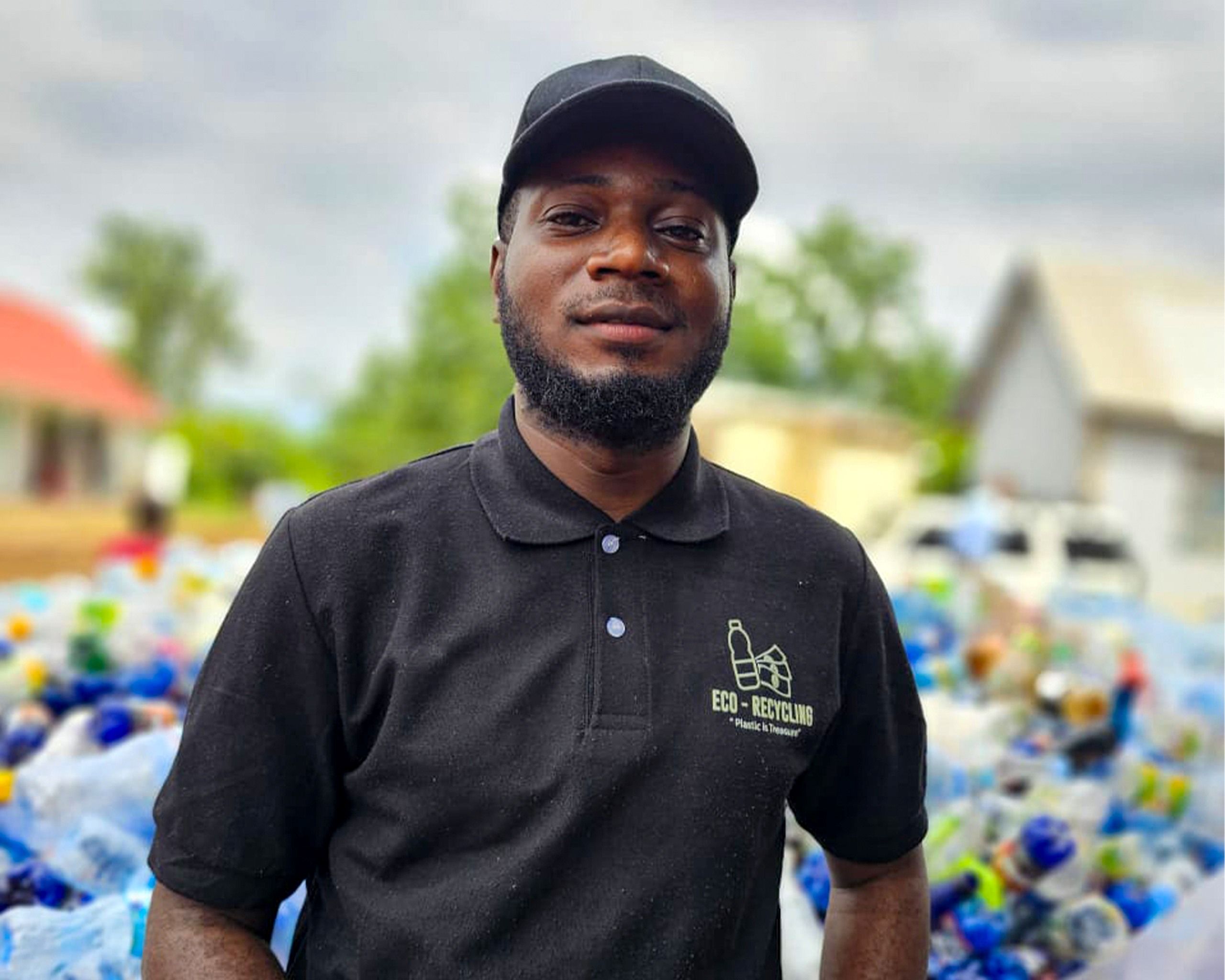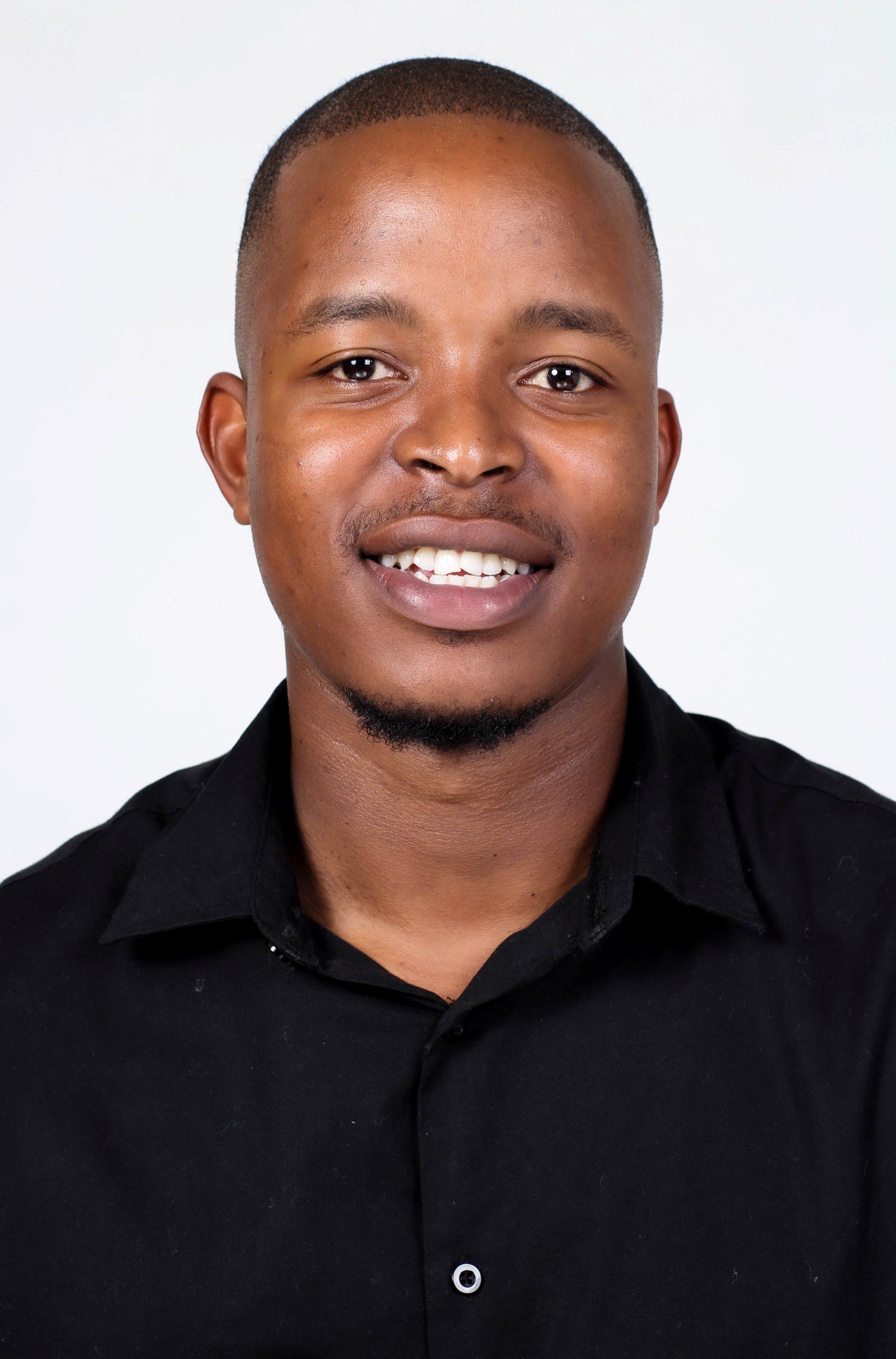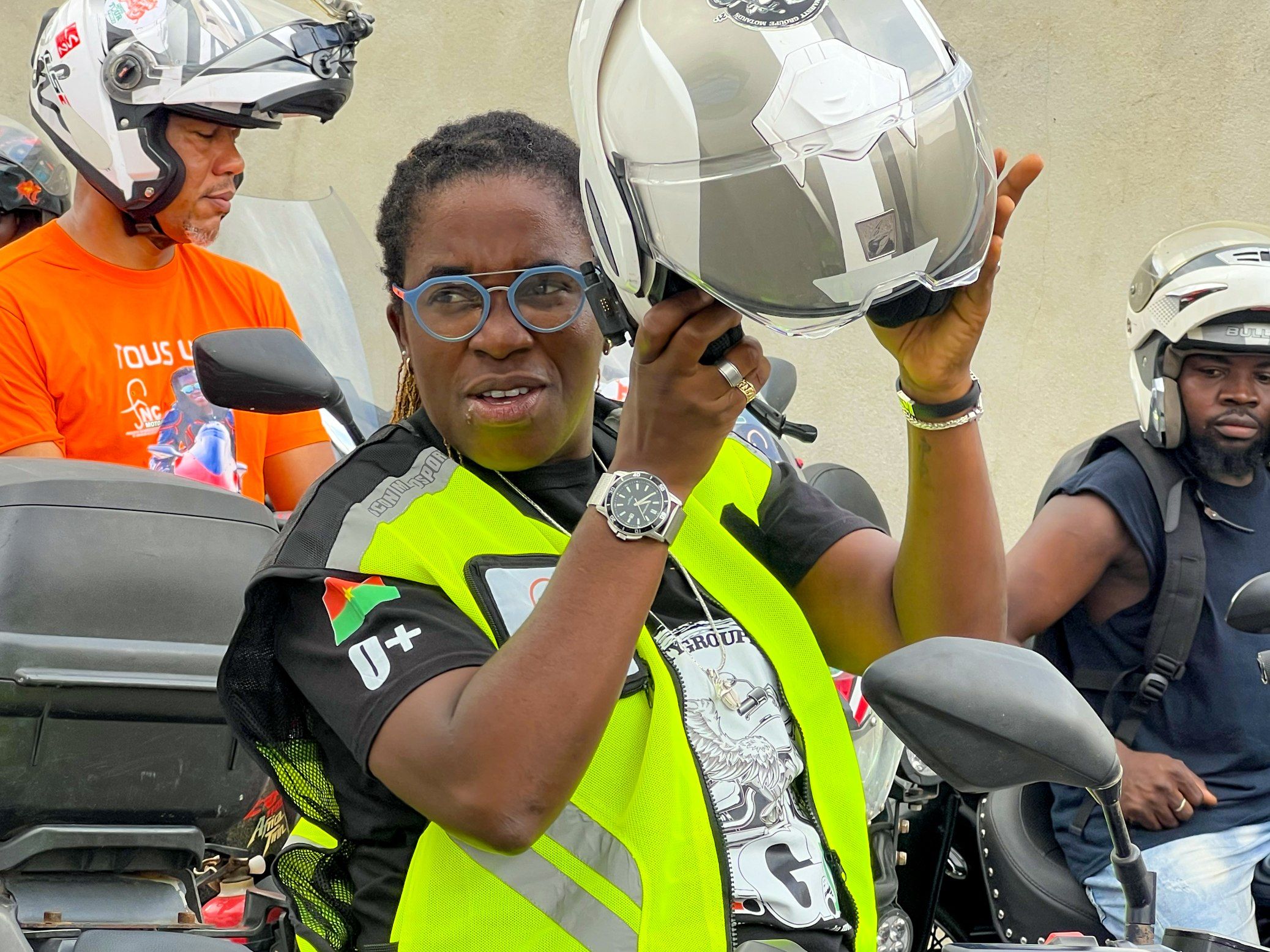Strap on a pair of virtual reality goggles and a Kenyan company will instantly whisk you away. Through immersive technologies, Fallohide is helping governments and companies throughout Africa create value and reduce costs through simulations and 360 films. Walid Kilonzi is the studio's producer and founder.

bird story agency
You find yourself on the second highest peak in eastern Kenya, in the thick of the Iveti forest, with its famed cedar and pine trees. Near the top of a rise, you come upon the famous 'miti muonza', the seven trees that have stood there for over eight decades. With a move of your head, you leave the forest and are transported to the inside of a workshop, where woodcarvers are busy at work.
After appreciating the finished bags, baskets, wood, and stone carving designs on display at the over-50-year-old Wamunyu Handcrafts, you can choose to go straight to the Muooni Dam, or seek spiritual guidance at the Komarock shrine. Alternatively, you can be teleported to the hyena caves.
"An immersive virtual reality experience is a more engaging way to introduce people to new cultures and locations," explained Walid Kilonzi, extended reality producer and founder of Fallohide. The Kenyan studio creates virtual versions of African realities and experiences, using Virtual Reality (VR), Augmented Reality (AR), and Mixed Reality (MR).
In its latest project, Fallohide has collaborated with Kenya's Machakos County Government to film, map and virtualise over 150 tourism-related small and medium enterprises (SMEs) and tourist attractions across the county.
"Machakos is one of Africa's first local governments to use Virtual Reality to promote its tourism industry. At the end of the project, we gave the businesses more than 5,000 assets for digital marketing," Kilonzi explained.
The assets will give the SMEs "a stronger digital presence for growth by utilising Virtual Reality," he said.
Kilonzi has worked on similar projects in over ten countries globally and serviced over 300 clients, most of whom are in the tourism and hospitality sector.
In this interview with bird story agency, he shares his experience in the extended reality sector and the opportunities it holds for Africa.
What is the importance of extended reality technology for Africa?
Africa relies mainly on storytelling to shift perspectives and narratives. Extended reality can help with narrative-shifting storytelling.
Let's say you wear these headsets, and it has an incredible 360 film about Kenya. For about ten minutes, you will be in Kenya and experience the country in first person. You'll see who Kenyans are and immerse yourself in their landscape. After that, your perspective on the country immediately changes.
Also, the technology facilitates access to skills and training. For example, one of our clients uses machines for manufacturing. And they've always had to send their African-based employees to Europe, Saudi Arabia or Asia to learn about the technology. But now we can make a simulation that can make it even ten times better and more realistic than what they will learn in a foreign country.
We've also created safety simulations for companies by mapping the factory into an animated process using hand tracking.
For creatives, this technology can significantly increase their economic power. The creative industry in Africa can be at par with the West regarding technology. We don't sell the novelty of our VR headsets, but it helps us make our own experiences. Besides, the technology can help improve the quality of creative offerings from Africa.
We can leverage this technology to solve daily problems in Africa.

How did you get into the Extended Reality space?
My curiosity got piqued when I first started exploring Google Maps on my phone. It has a feature called Google Street view, allowing you to see images up, down, and sideways simultaneously. And that always interested me.
While in high school, I attended a film camp, after which I became an apprentice at a particular studio during the holidays. Here, I learnt about scriptwriting, photography, and videography.
After high school, I joined the African Media Digital Institute and, in my second semester, got to work with some people who were in that space for about a year. I understood the business end of it while working on various projects with them. I later started Fallohide after I graduated in 2018, but it started operating on January 1 2019.
How was Fallohide received in the market when you started?
Starting a business is hard enough; it's ten times harder when that industry is practically non-existent. At that time when Fallohide began, the Extended Reality industry was very tiny.
The first six months were brutal. I was getting insights from Europe, South America, North America, and Asia, and they were not working for me here on the continent. So I had to carve out my path.
I only had one client, and it was my former college mate. They could see my vision, believed in me and gave me that chance.
Despite the challenges, I did not give up. When I opened Fallohide, I knew what I was getting into, so I was prepared for all the challenges.
We're now in a very solid spot, though. We might not be the big boys on the continent, but we are in a position where we are sustainably growing our market.
How did the partnership with Machakos County in Kenya come about? And what did it entail?
The Machakos County Government approached us and asked if we could shoot a normal documentary to match what was in their tourism circuit booklet. We, however, pitched them an idea to shoot an immersive marketing project in two phases.
In the first phase, we shot 30 documentaries of 30 tourism sites. These were both in virtual reality and regular documentary style. In the second phase, we partnered with Google to map about 150 hotels in the county.
In four months, we moved throughout Machakos mapping, giving access to business profiles, giving out free content, and shooting 360, VR, and normal photos and videos.
Ultimately, we created over 5000 assets just for the tourism industry.
What other exciting projects have Fallohide embarked on to date?
We have worked with Google Arts and Culture to map certain buildings in Nairobi.
We have also worked with Elopak Nampak, a regional packaging company, ALP West Logistics Park, Vivo and Coca-Cola Beverages Africa.
We have worked with other counties, such as Makueni, and we are currently in talks with Nakuru county in Kenya.
Those are our main clients. It's either like a three-system; production, simulation, or augmented reality experience.

What challenges do you face operating in the African extended reality space?
Technology awareness is one thing. We have to do numerous demonstrations of how this technology could be used.
Cost is another challenge. While the cost of deploying the technology has decreased significantly since 2016, it's still a barrier to entry. The headsets are quite expensive. Making simulations is massively costly and tricky to maintain.
Also, some developers can make something, but eventually, it stops working because of how the parent company or the headset has shifted the code.
What are your plans for the future?
We want to maintain and expand our profile as a transcontinental creative studio that creates impact. We also want to have an entire in-house team that is wholly from Africa. We currently work with a few people in Indonesia, the UK, and Argentina.
Further, we are looking into creating different markets for this technology, like getting into the art and food scene.
We want to create a distribution platform for VR and augmented reality content and assist in bringing other VR companies into existence because we believe in competition.
We are working towards being a market leader in extended realities in Africa. It would be great if we got some grant funding to help us develop more prototypes and cover research and development costs.
bird story agency

